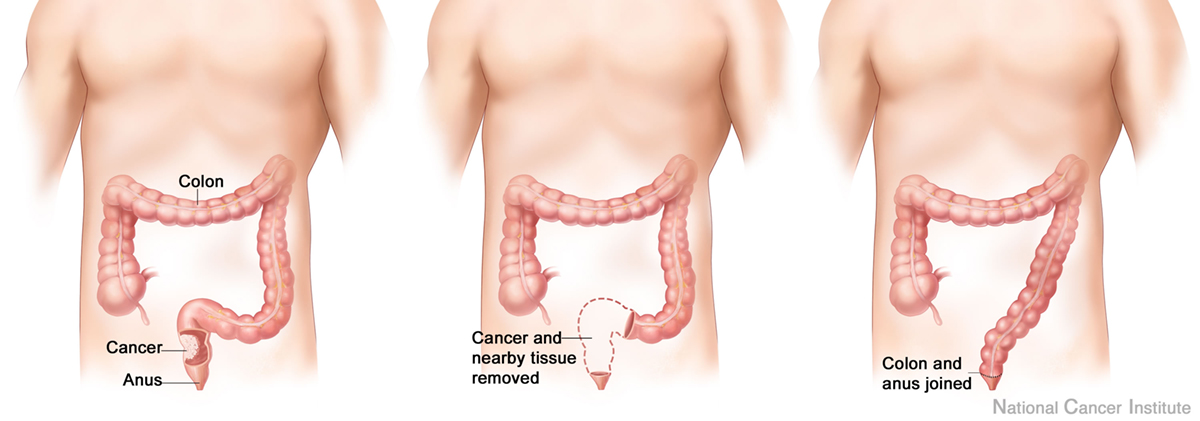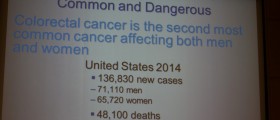
Colon cancer or colorectal cancer is a malignant tumor of the colon or its terminal part, the rectum. The cells in colon cancer develop rapidly and uncontrollably and allow the tumor to grow. Once the tumor has reached certain size it infiltrates the blood vessels and may spread to near and distant organs such as the liver, lungs, brain and bones.
Majority of colon cancers are pathohistologically adenocarcinomas. It is estimated that 1 in 17 people in the United States will develop colorectal cancer. This is the third most common cancer in men. Death caused by colorectal cancer ranks the third place after lung and prostate cancer in men and third place after lung and breast cancer in women.
Causes of Colon Cancer
Vast majority of colorectal cancers originate from adenomatous polyps. These polyps contain clusters of abnormal cells in the glands covering the inner surface of the colon or rectum. These cells eventually transform to malignant and they start to multiply rapidly and uncontrollably.
People suffering from adenomatous polyposis carry significant risk of colorectal cancer. They generally develop colon cancer before the age of 40. Adenomatous polyposis runs in families and this is why the condition carries the name familiar adenomatous polyposis.
Colon cancer may also be hereditary but not related to polyposis. This is so called hereditary nonpolyposis colorectal cancer.
Apart from the previously mentioned the risk for colorectal cancer is increased in patients suffering from ulcerative colitis and Chron's disease and patients who have had or currently have breast, uterine or ovarian cancer.
Several more factors which contribute to the disease are diet rich in fats and low in fibers, obesity and smoking.
Prevention against Colon Cancer
The best thing is to prevent the disease. If this is not possible the second best solution is detection of colon cancer in an early stage of the disease. People who go for regular screening for colon cancer undergo fecal occult blood tests, sigmoidoscopy or colonoscopy, and polyp removal (if the presence of polyps has been confirmed). The previously mentioned refers to people with history of colon cancer in the family and those suffering from familiar adenomatous polyposis.
Colon cancer screening is recommended to all people over the age of 50.
Additional measures of prevention include proper diet, rich in fibers, fresh fruit and vegetables and reduced intake of fat. It is also good to take a safe dose of folic acid every day. Smokers are supposed to quit smoking. One more way to prevent colon cancer is by being engaged in regular physical activity of any kind.

















Your thoughts on this
Loading...